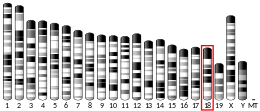ATG12
ATG12
Protein-coding gene in the species Homo sapiens
Autophagy related 12 is a protein that in humans is encoded by the ATG12 gene.[5][6]
| ATG12 | |||||||||||||||||||||||||||||||||||||||||||||||||||
|---|---|---|---|---|---|---|---|---|---|---|---|---|---|---|---|---|---|---|---|---|---|---|---|---|---|---|---|---|---|---|---|---|---|---|---|---|---|---|---|---|---|---|---|---|---|---|---|---|---|---|---|
| |||||||||||||||||||||||||||||||||||||||||||||||||||
| Identifiers | |||||||||||||||||||||||||||||||||||||||||||||||||||
| Aliases | ATG12, APG12, APG12L, FBR93, HAPG12, autophagy related 12 | ||||||||||||||||||||||||||||||||||||||||||||||||||
| External IDs | OMIM: 609608 MGI: 1914776 HomoloGene: 37953 GeneCards: ATG12 | ||||||||||||||||||||||||||||||||||||||||||||||||||
| |||||||||||||||||||||||||||||||||||||||||||||||||||
| |||||||||||||||||||||||||||||||||||||||||||||||||||
| |||||||||||||||||||||||||||||||||||||||||||||||||||
| |||||||||||||||||||||||||||||||||||||||||||||||||||
| |||||||||||||||||||||||||||||||||||||||||||||||||||
| Wikidata | |||||||||||||||||||||||||||||||||||||||||||||||||||
| |||||||||||||||||||||||||||||||||||||||||||||||||||
Autophagy is a process of bulk protein degradation in which cytoplasmic components, including organelles, are enclosed in double-membrane structures called autophagosomes and delivered to lysosomes or vacuoles for degradation. ATG12 is the human homolog of a yeast protein involved in autophagy (Mizushima et al., 1998).[supplied by OMIM][6]
Autophagy requires the covalent attachment of the protein Atg12 to ATG5 through a ubiquitin-like conjugation system. The Atg12-Atg5 conjugate then promotes the conjugation of ATG8 to the lipid phosphatidylethanolamine.[7]
Atg12 was found to be involved in apoptosis. This protein promotes apoptosis through an interaction with anti-apoptotic members of the Bcl-2 family.[8]
- "Human PubMed Reference:". National Center for Biotechnology Information, U.S. National Library of Medicine.
- "Mouse PubMed Reference:". National Center for Biotechnology Information, U.S. National Library of Medicine.
- Mizushima N, Sugita H, Yoshimori T, Ohsumi Y (Jan 1999). "A new protein conjugation system in human. The counterpart of the yeast Apg12p conjugation system essential for autophagy". J Biol Chem. 273 (51): 33889–33892. doi:10.1074/jbc.273.51.33889. PMID 9852036.
- J. Geng, and D. J. Klionsky, 'The Atg8 and Atg12 Ubiquitin-Like Conjugation Systems in Macroautophagy. 'Protein Modifications: Beyond the Usual Suspects' Review Series', EMBO Rep, 9 (2008), 859-64.
- A. D. Rubinstein, M. Eisenstein, Y. Ber, S. Bialik, and A. Kimchi, 'The Autophagy Protein Atg12 Associates with Antiapoptotic Bcl-2 Family Members to Promote Mitochondrial Apoptosis', Mol Cell, 44 (2011), 698-709
- Human ATG12 genome location and ATG12 gene details page in the UCSC Genome Browser.
- Prigione A, Cortopassi G (2007). "Mitochondrial DNA deletions and chloramphenicol treatment stimulate the autophagic transcript ATG12". Autophagy. 3 (4): 377–80. doi:10.4161/auto.4239. PMID 17457038.
- Ewing RM, Chu P, Elisma F, Li H, Taylor P, Climie S, et al. (2007). "Large-scale mapping of human protein-protein interactions by mass spectrometry". Mol. Syst. Biol. 3 (1): 89. doi:10.1038/msb4100134. PMC 1847948. PMID 17353931.
- Rual JF, Venkatesan K, Hao T, Hirozane-Kishikawa T, Dricot A, Li N, et al. (2005). "Towards a proteome-scale map of the human protein-protein interaction network". Nature. 437 (7062): 1173–1178. Bibcode:2005Natur.437.1173R. doi:10.1038/nature04209. PMID 16189514. S2CID 4427026.
- Gerhard DS, Wagner L, Feingold EA, Shenmen CM, Grouse LH, Schuler G, et al. (2004). "The status, quality, and expansion of the NIH full-length cDNA project: the Mammalian Gene Collection (MGC)". Genome Res. 14 (10B): 2121–2127. doi:10.1101/gr.2596504. PMC 528928. PMID 15489334.
- Ota T, Suzuki Y, Nishikawa T, Otsuki T, Sugiyama T, Irie R, et al. (2004). "Complete sequencing and characterization of 21,243 full-length human cDNAs". Nat. Genet. 36 (1): 40–45. doi:10.1038/ng1285. PMID 14702039.
- Mizushima N, Kuma A, Kobayashi Y, Yamamoto A, Matsubae M, Takao T, et al. (2004). "Mouse Apg16L, a novel WD-repeat protein, targets to the autophagic isolation membrane with the Apg12-Apg5 conjugate". J. Cell Sci. 116 (Pt 9): 1679–1688. doi:10.1242/jcs.00381. PMID 12665549.
- Mizushima N, Yoshimori T, Ohsumi Y (2003). "Mouse Apg10 as an Apg12-conjugating enzyme: analysis by the conjugation-mediated yeast two-hybrid method". FEBS Lett. 532 (3): 450–454. doi:10.1016/S0014-5793(02)03739-0. PMID 12482611. S2CID 37247321.
- Strausberg RL, Feingold EA, Grouse LH, Derge JG, Klausner RD, Collins FS, et al. (2003). "Generation and initial analysis of more than 15,000 full-length human and mouse cDNA sequences". Proc. Natl. Acad. Sci. U.S.A. 99 (26): 16899–16903. Bibcode:2002PNAS...9916899M. doi:10.1073/pnas.242603899. PMC 139241. PMID 12477932.
- Tanida I, Nishitani T, Nemoto T, Ueno T, Kominami E (2002). "Mammalian Apg12p, but not the Apg12p.Apg5p conjugate, facilitates LC3 processing". Biochem. Biophys. Res. Commun. 296 (5): 1164–1170. doi:10.1016/S0006-291X(02)02057-0. PMID 12207896.
- Tanida I, Tanida-Miyake E, Nishitani T, Komatsu M, Yamazaki H, Ueno T, et al. (2002). "Murine Apg12p has a substrate preference for murine Apg7p over three Apg8p homologs". Biochem. Biophys. Res. Commun. 292 (1): 256–262. doi:10.1006/bbrc.2002.6645. PMID 11890701.
- Tanida I, Tanida-Miyake E, Komatsu M, Ueno T, Kominami E (2002). "Human Apg3p/Aut1p homologue is an authentic E2 enzyme for multiple substrates, GATE-16, GABARAP, and MAP-LC3, and facilitates the conjugation of hApg12p to hApg5p". J. Biol. Chem. 277 (16): 13739–13744. doi:10.1074/jbc.M200385200. PMID 11825910.
- Ueno K, Kumagai T, Kijima T, Kishimoto T, Hosoe S (1998). "Cloning and tissue expression of cDNAs from chromosome 5q21-22 which is frequently deleted in advanced lung cancer". Hum. Genet. 102 (1): 63–68. doi:10.1007/s004390050655. PMID 9490301. S2CID 36201527.
- Bonaldo MF, Lennon G, Soares MB (1997). "Normalization and subtraction: two approaches to facilitate gene discovery". Genome Res. 6 (9): 791–806. doi:10.1101/gr.6.9.791. PMID 8889548.
This article on a gene on human chromosome 5 is a stub. You can help Wikipedia by expanding it. |






